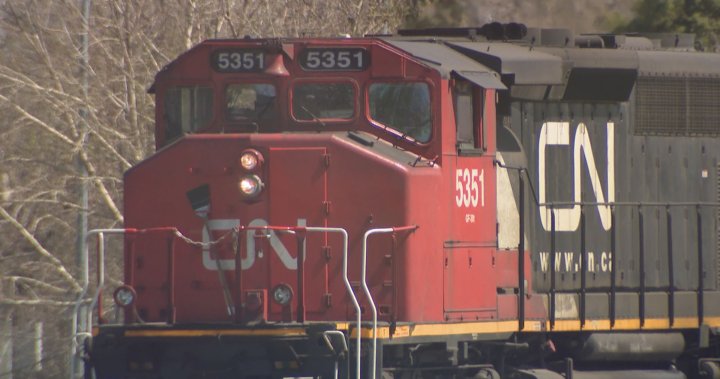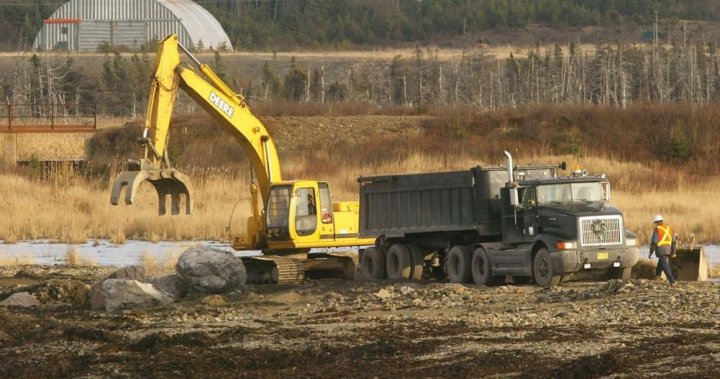As Canadian National Railway and Canadian Pacific Kansas City’s contract talks remain at a standstill following a vote in favour of a strike mandate, many are wondering what a work stoppage would look like for the Saskatchewan agricultural and mining industries.
The president of the Saskatchewan Mining Association (SMA) said the potential strike, which would start May 22, is a real concern for them because using the railway is the only way they move potash from the mines.
“In Saskatchewan to export markets is by rail, because it’s a bulk commodity,” Pam Schwann said. “So, if the rails (aren’t) moving, we aren’t able to mine product because we have limited capacity on site for storage. So, we need the rails to be moving consistently to get our product to market.”
Schwann said they have been getting as much product out to export market as they can right now but once a strike is on, there’s no way to move any product.
Breaking news from Canada and around the world
sent to your email, as it happens.
“It is a real imperative that there be a resolution to this strike,” she said. “Canada is the world’s most sustainable producer of potash, and Saskatchewan is the world’s most sustainable producer of potash…. We need the government of Canada to act expeditiously to make sure there is no strike action, and that the national rail system continues to flow for the reputation of Canada.”
Schwann said not only will the SMA be affected but workers will also feel the effect with labour disruption,
Bill Prybylski, a vice-president with the Agricultural Producers Association of Saskatchewan (APAS), said if the strike does take place, difficulty obtaining fertilizer will have a significant impact on producers.
“Our plants need a specific amount of fertilizer based on our soil tests,” he said. “If we can’t get that fertilizer, it’s obvious that we wouldn’t be able to achieve our targeted yields.”
The second potential issue for producers is that once they have finished seeding, they will need to be able to sell grain to pay for the inputs they use to grow crops. Prybylski said the majority of Saskatchewan producers are in the process of seeding and using huge amounts of inputs that will need to be paid for.
“We have to sell our grains to pay for our inputs,” he said. “Possibly a longer-term impact would be Canada’s reputation as a reliable source of grain. If customers have ships waiting at the port to be loaded and there’s no grain there because of a rail strike, that’s certainly going to further harm Canada’s reputation as a reliable source of grain.”
From a farmer’s perspective, Prybylski said there are no viable alternatives for producers if the strike goes forward. For SMA, there will be a loss in revenue. Schwann said in 2023, SMA produced about 22 million tonnes of KCL potash, which had a value sale of $11 billion.
© 2024 Global News, a division of Corus Entertainment Inc.




